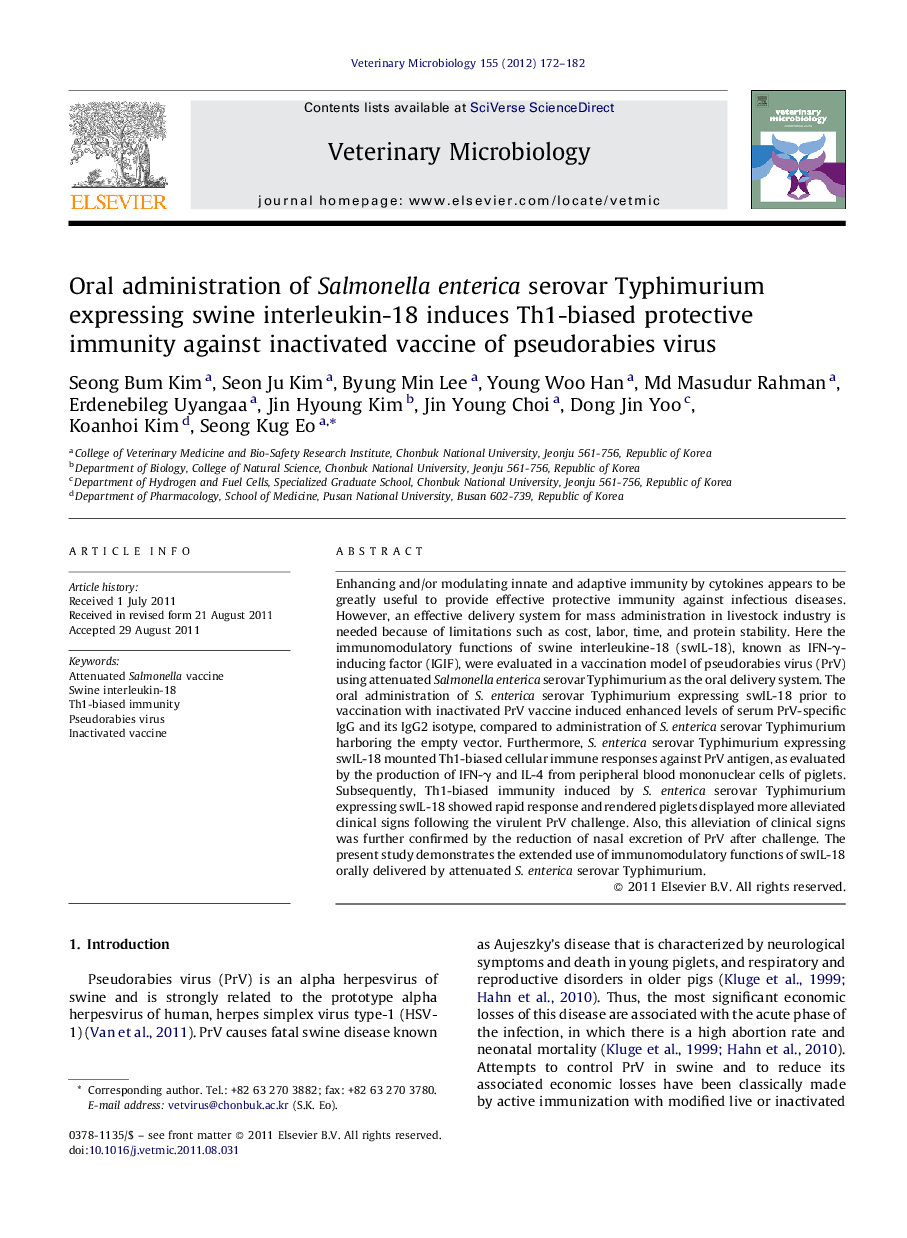| Article ID | Journal | Published Year | Pages | File Type |
|---|---|---|---|---|
| 2467436 | Veterinary Microbiology | 2012 | 11 Pages |
Enhancing and/or modulating innate and adaptive immunity by cytokines appears to be greatly useful to provide effective protective immunity against infectious diseases. However, an effective delivery system for mass administration in livestock industry is needed because of limitations such as cost, labor, time, and protein stability. Here the immunomodulatory functions of swine interleukine-18 (swIL-18), known as IFN-γ-inducing factor (IGIF), were evaluated in a vaccination model of pseudorabies virus (PrV) using attenuated Salmonella enterica serovar Typhimurium as the oral delivery system. The oral administration of S. enterica serovar Typhimurium expressing swIL-18 prior to vaccination with inactivated PrV vaccine induced enhanced levels of serum PrV-specific IgG and its IgG2 isotype, compared to administration of S. enterica serovar Typhimurium harboring the empty vector. Furthermore, S. enterica serovar Typhimurium expressing swIL-18 mounted Th1-biased cellular immune responses against PrV antigen, as evaluated by the production of IFN-γ and IL-4 from peripheral blood mononuclear cells of piglets. Subsequently, Th1-biased immunity induced by S. enterica serovar Typhimurium expressing swIL-18 showed rapid response and rendered piglets displayed more alleviated clinical signs following the virulent PrV challenge. Also, this alleviation of clinical signs was further confirmed by the reduction of nasal excretion of PrV after challenge. The present study demonstrates the extended use of immunomodulatory functions of swIL-18 orally delivered by attenuated S. enterica serovar Typhimurium.
